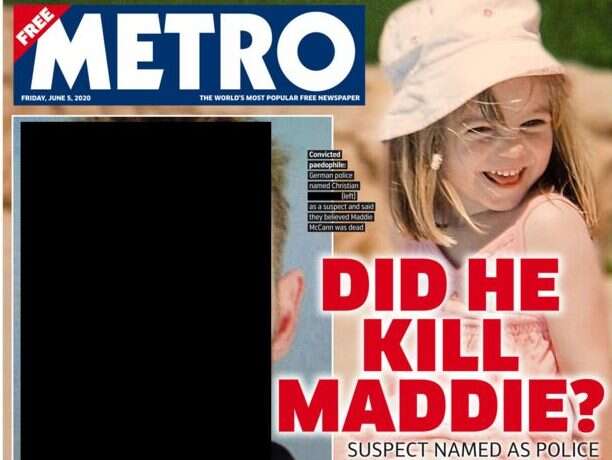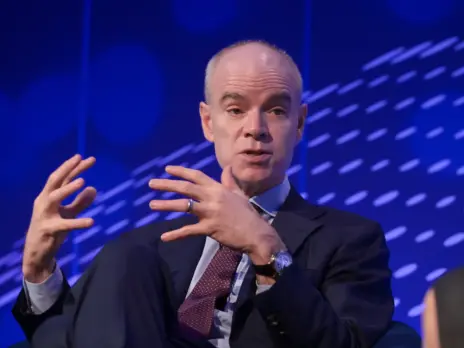
Strict German privacy laws have led to the censoring of images of the new prime suspect in the disappearance of Madeleine McCann, including in the UK.
Most UK national newspapers named and pictured the suspect, officially known as Christian B, on their front pages today, with the exception of the Financial Times.
But the BBC and Sky News blanked out the parts of the front pages featuring the suspect’s name and photo on their papers round-ups on TV and online.
On the BBC News Channel’s papers round-up last night, viewers were told: “We have blanked out his identity as well along with the German guidelines which the German press are using.”
And the BBC website said: “Because of German privacy law, and the BBC website being accessible in Germany, the BBC has not pictured him.”
Sky News said it is “not revealing his full name nor showing his picture because of German law”.
But Bild, Germany’s biggest paper, has pictured Christian B on its website today without obstruction.
Only two UK newspaper websites appear to have chosen to follow German convention in their reports – blanking out the eyes of the suspect in any photos used and not using his surname. They are the Sun and the Express.
The Sun said in one online story: “We cannot reveal his full identity due to German privacy laws.”
The i, Independent and Standard websites appear to be using the suspect’s full name but no photos.
Until international press named and pictured the man yesterday, German police were appealing for information based only on his description.
This is in line with laws that have seen some of Germany’s most horrific criminals go without being fully identified before conviction.
A gunman who killed ten people in the town of Hanau in an apparently racially-motived attack was only identified by police as Tobias R in line with common practice, even though he had also killed himself in the rampage.
Two German killers sued Wikipedia in 2009, claiming that by publishing detail of their crimes it had infringed their right to privacy, according to the Guardian which said at the time it was not naming the men because its newspaper was available in Germany.
Germany now has some of the strictest privacy laws, including data protection, in the world and sees naming suspects before conviction as an intrusion into their privacy.
The German Privacy Act applies to any companies, even if they are not based in Germany, if they offer goods or services in the country or monitor the behaviour of data subjects there, according to an overview of the law by Deloitte. This could be seen to apply to UK broadcasters and news websites.
Although there does not appear to be one single law forbidding such publication, it has become precedent derived from a number of sections of the German constitution.
In one part, the constitution states that: “Freedom of the press and freedom of reporting by means of broadcasts and films are guaranteed. There may be no censorship.”
However, this is immediately granted a major caveat: “These rights are subject to limitations in the provisions of general statutes, in statutory provisions for the protection of the youth, and in the right to personal honor.”
The constitution also protects the “right to free development of his personality” and human dignity.
Although UK police frequently identify suspects in appeals for information, the Metropolitan Police yesterday issued only a detailed description of Christian B, adding: “This individual, who we will not identify, is currently in prison in Germany for an unrelated matter.”
In the UK, singer Sir Cliff Richard has been campaigning for those facing sexual offence accusations to be given anonymity until they are charged. It followed his High Court privacy win over the BBC in 2018.
Email pged@pressgazette.co.uk to point out mistakes, provide story tips or send in a letter for publication on our "Letters Page" blog






